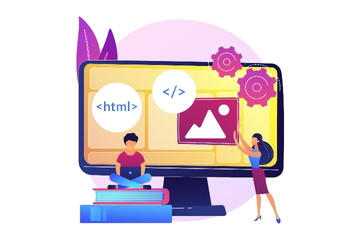
The practice of optimising your website for search engines to raise the site's position in search results and gain more natural (unpaid) traffic is what search engine optimization (SEO) really means.
When search engines first appeared in the 1990s, SEO had its beginnings. It is a crucial marketing tactic nowadays and an industry that is constantly expanding.
PPC optimization is not included in search engine optimization, which exclusively concentrates on organic search results. A component of search engine marketing is both SEO and PPC.
While looking for anything on the internet, individuals utilise search engines. And you want to give that item the response. No matter what you do with your website—whether you offer goods or services, run a blog, or anything else—search engine optimization is a need.
In a nutshell:
SEO refers to all the activities you carry out to influence Google to view your website as a reliable source and rank it higher for the search terms you want.
Key learning areas from the SEO course
These are the major processes involved in how search engines operate:
Crawling
Search engines continually monitor all of the internet's web pages through a process called crawling. They employ tiny bits of software (referred to as crawlers or bots) to follow each link and find new pages (as well as updates to the pages they discovered before).
Indexing
The data is indexed once the website has been crawled. Search engines make an effort to categorise, interpret, and understand the pages before storing them in the index.
The search engine index is essentially a massive library of all the websites that have been crawled for the sole purpose of understanding them and making them accessible for use as search results.
Choose the outcomes
The search engine searches the index after receiving a search query from a web user and provides the most relevant pages. A SERP is a term for the results list (Search Engines Results Page).
All of the algorithms, machine learning techniques, and technologies that Google employs to rank web pages are collectively referred to as the "Google Search Algorithm" in this context.
They take into account several aspects, including:
Significance of the query: The search engine must comprehend precisely what the user is looking for.
The pages' relevancy: The page has to be pertinent to the search term
Content quality: The search engine makes an effort to choose the top outcomes in terms of content quality.
Usability of pages: The pages themselves ought to be navigable (in terms of accessibility, readability, safety, etc.)
Context and settings: Last but not least, the user's settings, location, and search history are taken into account.
Ranking factors
The precise algorithms used in search engine algorithms are kept a secret. Nonetheless, a lot of the ranking determinants are generally recognised.
In the field of SEO, ranking criteria are a frequently debated subject.
While several of these have been formally verified by Google, many others are still just theories and rumours. Practically speaking, it's crucial to concentrate on variables with a known effect while attempting to maintain a "good score" across all domains.
Conclusion
Our SEO course will help you understand how things work when it comes to organic search. Join V1 Academy as we help learners enhance their digital marketing skills. Get in touch with us today as we help make a difference.

No Experience? No Problem. Here's Why a Basic Computer Course Could Be Your Best First Step

Design Your Future: Why a Graphic Design Course Is More Than Just Art

Why Every Student - No Matter the Degree - Should Learn to Code

From Learner to Innovator: How a Mobile App Development Course Can Accelerate Your Career

Your Passion, Your Code, Your Triumph: Learn Programming to Conquer Your Fears

Turn Your Imagination into Income: Why Graphic Design Is the Skill You Need Now

Own Your Destiny: Why Every Student Must Learn SEO & Digital Marketing Now

Feeling Lost After 12th? Discover How Mobile App Development Can Shape Your Bright Future

What They Don’t Teach in YouTube Tutorials: 5 Web Development Secrets Only Real Courses Offer

Dreaming of a Career in Tech? Start Here with Our Programming & Development Course

Can You Learn Computers Without Any Experience? YES, and Here’s How

Tired of Feeling Left Behind? Learn Digital Marketing and Take Control of Your Future